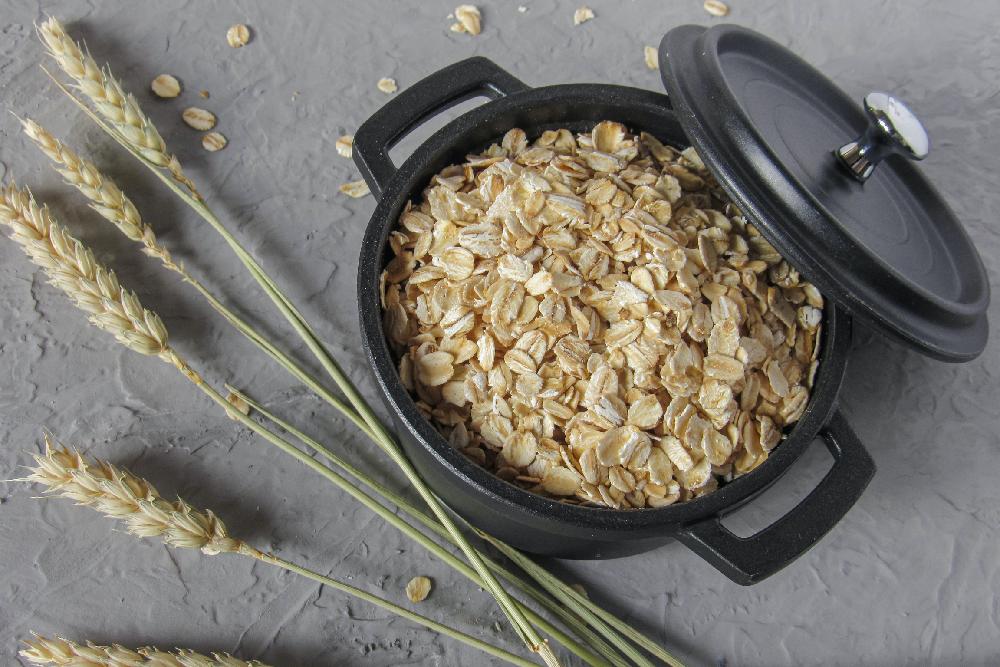In the world of nutrition, few grains boast the versatility and health benefits of oats. Beyond their reputation as a breakfast staple, oats have emerged as a nutritional powerhouse, offering a lot of advantages for those seeking a healthier lifestyle. From supporting heart health to providing sustained energy, oats have earned their place as a superfood in the world of whole grains.
Table of Contents
What are oats?
Oats, also known as Avena sativa, are a cereal grain that has been cultivated for thousands of years. They are most commonly consumed in the form of rolled oats, which are produced by steaming the oat groats and then rolling them flat. Oats are a popular breakfast food, often consumed as oatmeal or added to granola and muesli.
There are several types of oats:
- Whole Oats: These are the whole, minimally processed oats with only the outer husk removed. They have a nutty flavor and a longer cooking time.
- Steel-Cut Oats: These are whole oats that have been chopped into pieces using steel blades. They have a chewy texture and a hearty flavor.
- Rolled Oats: These are steamed and flattened with large rollers to reduce cooking time.
- Quick Oats: These are rolled oats that have been cut into smaller pieces, further reducing their cooking time.
- Instant Oats: These oats are pre-cooked, dried, and often have added flavors and sweeteners. They have the shortest cooking time but may have a softer texture.
Oats are a good source of soluble fiber, which has been shown to help prevent the risk of heart disease, lower cholesterol and stabilize blood sugar levels. Additionally, oats are rich in important nutrients such as manganese, phosphorus, magnesium, and iron, making them an ideal addition to a balanced and healthy diet.
Due to their high fiber content, rolled oats are known to aid in digestion and promote a feeling of fullness, making them a popular choice for breakfast or as an ingredient in various recipes. They are a valuable and versatile food staple that offers numerous health benefits when consumed as part of a diet.
Where do oats come from?
Oats have a long and diverse history, originating in Asia Minor around 2000 BC. They spread to Europe, particularly thriving in colder climates, and gained popularity in medieval times. As time went by, oats became significant in North America and later gained a healthy image for their high fiber content. Today, oats are a global crop, celebrated for their adaptability and nutritional value, found in various food products worldwide.
Oats are derived from the species Avena sativa, a member of the Poaceae grass family. Avena sativa, or common oat, is cultivated primarily for its seed, which is harvested and processed to create the various oat products found in the market. Oats are grown in a variety of countries across the globe, where the climate and soil conditions are suitable for their cultivation.
The process of oat cultivation involves sowing the seeds in well-prepared soil, followed by careful maintenance and regular irrigation to ensure optimal growth. Once the oats have reached maturity, they are harvested, cleaned, and processed for various uses, such as in breakfast cereals, baked goods, and livestock feed.
Overnight Oats
Overnight oats have become increasingly popular due to their convenience and health benefits. This simple yet versatile dish involves mixing rolled oats with a liquid such as milk or yogurt and letting it sit in the refrigerator overnight. By morning, the oats have absorbed the liquid and become soft and creamy, ready to be enjoyed without any additional cooking.
Overnight oats can be customized with various toppings such as fresh fruits, nuts, seeds, and sweeteners to suit individual preferences. They’re perfect for hectic mornings since you can prep them ahead and conveniently grab them for a quick on-the-go bite. The high fiber and protein content in overnight oats make them a satisfying and healthy choice for breakfast.
Health Benefits of Oatmeal
Rich in Fiber
Oats contain abundant amounts of both soluble and insoluble fiber. Fiber helps digestion, promotes a feeling of fullness, and helps regulate blood sugar levels by slowing down the absorption of glucose. This could be beneficial for individuals who suffer from diabetes or those who have a chance of getting diabetes. It also supports gut health by promoting the growth of beneficial gut bacteria.
Source of Antioxidant
Oats contain antioxidants, for example, avenanthramides, which have anti-inflammatory and anti-itching properties. Avenanthramides could aid in protecting cells against oxidative stress.
Oxidative stress arises from an imbalance between the generation of free radicals and the body’s ability to counteract them. This imbalance can lead to cell damage, aging, and other diseases. The existence of antioxidants in oats helps neutralize free radicals, providing a defense against oxidative stress.
Eating Oats Can Help Lower Cholesterol Levels
Beta-glucans, which are found in oats, are a form of soluble fiber associated with the reduction of LDL (bad) cholesterol levels. Regular oats consumption may prevent heart disease by lowering cholesterol levels and maintaining heart health.
Packed with Essential Nutrients
Oats are also rich in essential nutrients, including protein, complex carbohydrates, and a variety of vitamins and minerals such as B vitamins, manganese, phosphorus, and magnesium. These nutrients contribute to overall health by supporting functions like energy metabolism, bone health, and nerve function.
Manage a Healthy Weight
The high fiber content in oats can help weight management by promoting satiety and reducing overall calorie intake. Oats are a filling and nutritious food, making them a good choice for those who want to maintain or lose weight.
In conclusion, oats offer a lot of health benefits ranging from cardiovascular support, managing blood sugar levels, and weight management to antioxidant properties. Whether enjoyed in the traditional form of oatmeal or overnight oats, their nutrient-rich composition makes them a versatile and healthy choice.

